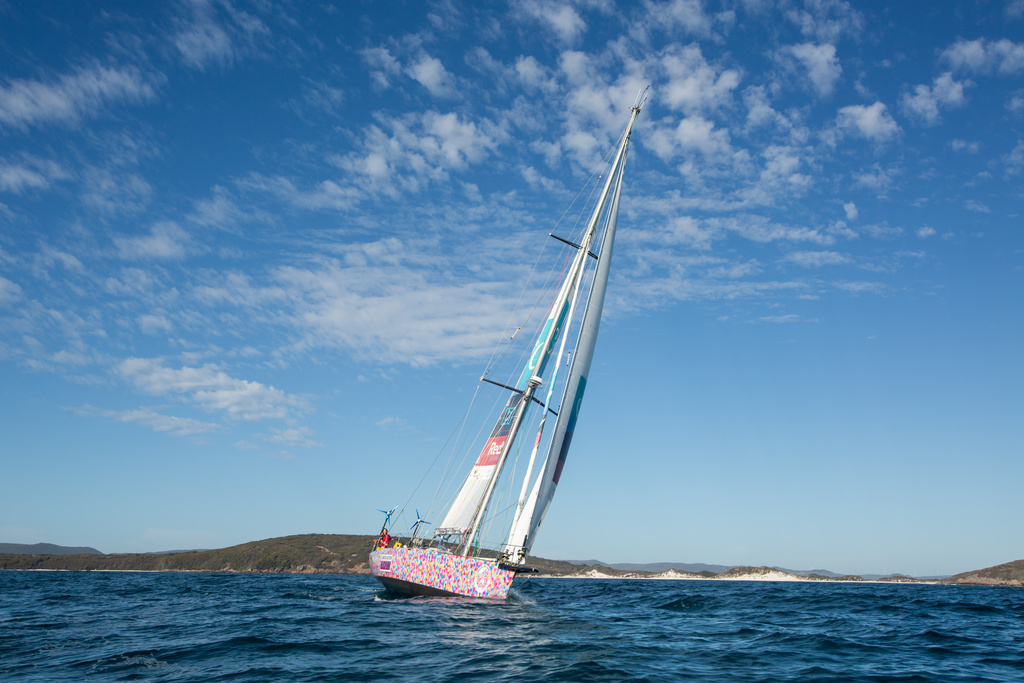During her 92 days at sea Lisa has been continuously collecting mircoplastics samples for IMOS.
Australian solo sailor Lisa Blair sailed into Albany, Western Australia on Wednesday morning, completing her unassisted circumnavigation of Antarctica in 92 days, 10 days faster than the previous record holder, Fedor Konyukhov.
Lisa sailed between a latitude of 45 and 60 degrees south around Antarctica covering over 16,516 nm.
Lisa has a passion for a healthy ocean and planet, so during this voyage Lisa collected oceanographic data and microplastics samples.
IMOS provided funding for the microplastics sampling equipment installed on Lisa’s yacht, and for the analysis of the microplastics samples by researchers at the Australian Institute of Marine Science (AIMS).
“I would like to congratulate Lisa on achieving such a historic journey, and commend her for her initiative and commitment to collecting microplastics samples in this remote and under sampled location for IMOS,” said IMOS Director Dr Michelle Heupel.
“These data will shed light on the prevalence of microplastics in Antarctic waters, creating a unique baseline for current and future research in the region.”
Lisa had a research unit on her yacht that measured various water parameters such as temperature, salinity and carbon dioxide. The research unit was also used for microplastics monitoring, by trapping microplastics on specially designed filters, which Lisa collected daily, stored on board, and brought back for analysis.
Dr Cherie Motti leads the team at AIMS who will be analysing the samples, and said Lisa’s continual sampling of the water was a first for the Southern Ocean.
“We know very little about the abundance of plastic fragments in the Southern Ocean, so we have been excited to work with Lisa to ensure she can collect the most reliable information from this remote area. The data she is collecting will provide valuable insights into the prevalence of microplastics, and the threat they pose to the region,” said Dr Motti.
Further information:
IMOS is also sampling microplastics at selected sites across our National Mooring Network to establish a database of microplastics contamination in coastal and shelf waters around Australia. The microplastics project is part of the IMOS New Technology Proving Facility, which explores new and innovative ways to collect observations.
The team at Australian Institute of Marine Science (AIMS) led by Dr Cherie Motti collaborates with institutions in Australia as well as overseas to improve our understanding of microplastics contamination in tropical marine waters.
